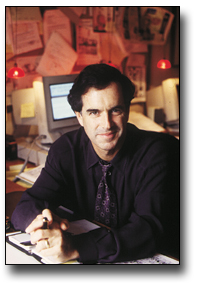…but can you hear?
I thought of that as I read the October 14, 2010 issue of Rolling Stone magazine. There’s a rare interview with Doonesbury cartoonist Garry Trudeau. He describes his early days as an art student at Yale.
One of my first teachers at Yale was Richard Lytle. I waltzed into his drawing class with the bravado of a freshman art jock who thought he was going to make an impression on his professor, and I did. I whipped off the usual kind of drawings I was accustomed to making, somewhat effortlessly. One day, after about three weeks of this nonsense, we were working from a model, and he came over to my drawing board and ripped the drawing I was working on into pieces in front of the class. “Yes, yes, I know you can draw,” he said. “But what I want to find out is if you can see.” He wasn’t going to put up with this sort of facile art-student sketching that I had taken such pride in ‚Äî he wanted me to do the hard work of actually looking at what I was drawing.
I see (er, “hear”) the aural equivalent all the time. Composers who are quite facile at composing and getting lots of notes down on paper, but have they actually heard what they’ve composed? Have they taken the time to listen to its effects, what it communicates? A composer should always take a moment to dig a little deeper, to delve under the surface, and actually hear.
The full interview can be found by clicking here.

Leave a Reply